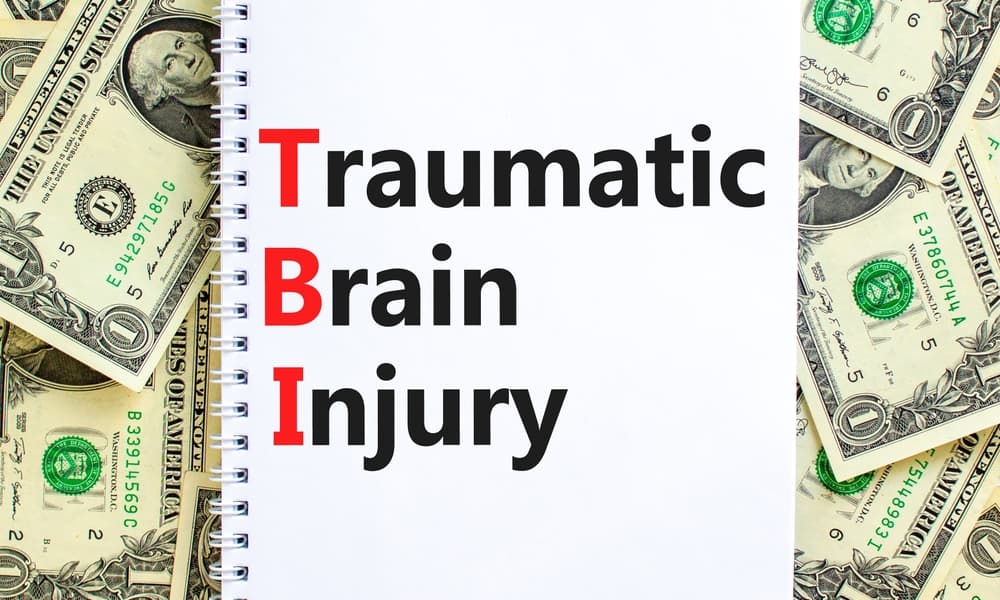Understanding TBIs and Their Effect on the Brain

Traumatic brain injuries (TBIs) occur when a sudden blow or jolt to the head disrupts normal brain function. They range from concussions to severe brain damage. There is no such thing as a minor brain injury. Any type of brain injury can be serious. Falls, car accidents, sports injuries, or violent assaults often cause brain injuries. Understanding how TBIs affect the brain is crucial to recognizing symptoms, seeking timely treatment, and pursuing appropriate care and support.
The brain is an incredibly complex and sensitive organ. When it suffers trauma, even minor swelling or bleeding can impair its ability to send and receive signals. In brain injuries like concussions, victims may experience temporary confusion, headaches, dizziness, or memory lapses. These effects often resolve with rest, though repeated concussions can lead to long-term cognitive issues. Simply stated, the brain may heal after time, but it cannot be repaired if there is damage.
Moderate to severe TBIs can cause more profound impairments. These injuries may involve bruising (contusions), bleeding (hemorrhage), or nerve damage within the brain. Symptoms can include loss of consciousness, personality changes, slurred speech, coordination problems, and even coma. In many cases, victims require extensive rehabilitation and long-term support.
TBIs can also lead to secondary complications, such as brain swelling (edema), infections, seizures, or hydrocephalus (fluid buildup in the brain). Additionally, long-term consequences may include emotional instability, depression, anxiety, or difficulties with attention, learning, and memory.
Because the brain controls every aspect of bodily function and behavior, the effects of a TBI can be far-reaching and life-altering. Early diagnosis through imaging scans and neurological evaluations is critical. Depending on severity, treatment may include medication, surgery, physical therapy, occupational therapy, and cognitive rehabilitation.
What Is Early-Onset Alzheimer’s?
Early-onset Alzheimer’s is a form of Alzheimer’s disease that occurs before the age of 65, often affecting individuals in their 40s or 50s. While it represents a small percentage of all Alzheimer’s cases, it can be particularly devastating because it strikes during a person’s prime working and family-raising years. Like the more common late-onset form, early-onset Alzheimer’s is a progressive neurological disorder that affects memory, thinking, and behavior.
The symptoms of early-onset Alzheimer’s often begin subtly. People may begin forgetting recent conversations, having difficulty concentrating, struggling with problem-solving tasks, or becoming disoriented in familiar places. Over time, these symptoms worsen, leading to more significant cognitive and functional impairments.
In some cases, early-onset Alzheimer’s is linked to genetic mutations inherited from a parent, making it more likely to appear in multiple family members. This is referred to as familial Alzheimer’s disease. However, many cases of early onset have no clear genetic cause. Environmental factors and brain injuries may also result in early-onset Alzheimer’s.
The Link Between a Traumatic Brain Injury and Early-Onset Alzheimer’s
Research increasingly supports a connection between traumatic brain injuries and an elevated risk of developing neurodegenerative conditions, including early-onset Alzheimer’s disease. A TBI occurs when a sudden trauma, such as a blow to the head, fall, or motor vehicle accident, causes damage to the brain. Depending on the severity, TBIs can lead to both short-term and long-term cognitive impairment.
One of the most concerning long-term effects is the increased likelihood of developing dementia-related conditions earlier than expected. Studies have shown that individuals who suffer moderate to severe TBIs may be at a significantly higher risk for early onset Alzheimer’s, particularly if the injury involves loss of consciousness for an extended period. Even so-called mild TBIs may contribute to this risk.
The biological link lies in how the brain responds to trauma. TBIs can trigger inflammation, oxidative stress, and the abnormal accumulation of proteins such as tau and beta-amyloid. These are all hallmarks of Alzheimer’s disease. Over time, these changes may accelerate the degeneration of neurons and the loss of brain function typically seen in Alzheimer’s patients.
For individuals under 65 who experience cognitive decline following a TBI, it’s essential to consider early-onset Alzheimer’s as a possible diagnosis. Early symptoms such as memory loss, confusion, and difficulty concentrating may be incorrectly attributed to post-concussive syndrome or psychological distress, delaying effective treatment.
Early diagnosis is crucial for planning medical care, accessing support services, and making legal and financial arrangements. If you or a loved one has suffered a brain injury and later developed cognitive symptoms, consulting with a neurologist and exploring the possibility of TBI-linked dementia can be a vital step. You should also hire a brain injury attorney if the injury resulted from someone else’s negligence.
Legal Implications of a TBI and Early-Onset Alzheimer’s

When a TBI results in early-onset Alzheimer’s disease, the legal consequences can be significant and far-reaching. Victims and their families may face a complex web of issues involving personal injury claims, long-term care planning, and the protection of legal and financial rights.
First and foremost, if the TBI was caused by another party’s negligence, such as in a car crash, a fall on unsafe property, or a workplace accident, the injured person may be entitled to compensation. This can include damages for medical expenses, lost earnings, pain and suffering, loss of earning capacity, and future care needs. Proving a link between the TBI and early onset Alzheimer’s is often key in these cases, and may require expert medical testimony to show that the neurodegenerative condition stemmed from the original injury.
The problem is that you may have already settled your brain injury case well before the time that you develop early-onset Alzheimer’s. You cannot come back for additional compensation in the future if you develop other effects from your injuries.
Ultimately, the intersection of a TBI and early onset Alzheimer’s involves more than just medical care. It raises pressing legal and financial concerns. Working with a brain injury attorney who understands brain injuries and neurodegenerative conditions can be essential to protecting the rights and dignity of the affected individual.
Proving Causation in a Lawsuit for Early-Onset Alzheimer’s
Proving causation in a lawsuit for early-onset Alzheimer’s resulting from a traumatic brain injury is a complex legal and medical task. The central challenge is demonstrating a direct and legally sufficient connection between the original head trauma and the later diagnosis of Alzheimer’s disease. Because Alzheimer’s often develops years after the injury, establishing causation requires robust medical evidence and expert testimony.
First, plaintiffs must show that the TBI occurred and was caused by the defendant’s negligence, such as in a car crash, fall, or workplace accident. This is typically supported through medical records, witness statements, and accident reports. The more difficult part is linking that TBI to the eventual onset of Alzheimer’s.
This requires expert medical opinions, often from neurologists or neuropsychologists, who can explain how brain trauma accelerates or contributes to degenerative neurological conditions. These experts may refer to peer-reviewed studies indicating that individuals with moderate to severe TBIs have a significantly increased risk of developing Alzheimer’s, especially at a younger age. Imaging studies, neurocognitive testing, and records showing the absence of other risk factors (like family history) may also help establish causation.
Courts will also consider whether the progression of symptoms aligns with a trauma-induced onset. To be successful, plaintiffs must prove that it is more likely than not that the TBI was a substantial contributing factor to the development of early-onset Alzheimer’s. A skilled attorney is essential in assembling this evidence and presenting a compelling case to insurers or in court.
Seeking Compensation for TBI Victims Facing Cognitive Decline

Traumatic brain injury victims who experience cognitive decline face unique and often life-altering challenges. Memory loss, difficulty concentrating, impaired judgment, and personality changes can drastically impact their ability to work, maintain relationships, and live independently. When another party’s negligence causes a TBI, the law allows victims to seek compensation for their injuries and long-term suffering.
Obtaining compensation can provide essential financial support for medical treatment, rehabilitation, long-term care, and loss of income. For those experiencing progressive cognitive decline, this compensation may also cover the cost of in-home assistance, assisted living facilities, and therapies aimed at maintaining quality of life. Emotional distress, pain and suffering, and loss of enjoyment of life are also valid components of a claim.
However, proving the full extent of damages in these cases can be complex. Insurance companies may downplay the severity of symptoms or argue that cognitive decline stems from unrelated causes. That’s why working with an attorney experienced in TBI cases is critical. They can help gather medical evidence, coordinate expert evaluations, and build a strong case demonstrating the connection between the injury and the ongoing cognitive impairments.
Time is also a factor. The statutes of limitations may bar claims if victims wait too long to act. By seeking legal help early, TBI victims and their families can protect their rights and pursue the financial compensation they need to move forward with dignity and support. The problem arises when you begin to develop symptoms of cognitive decline close to or after the statute of limitations has expired.
How a Brain Injury Lawyer Can Help You
Suffering a brain injury can have life-altering consequences. A brain injury lawyer can be an essential ally in helping you navigate the legal and financial challenges that follow. You likely do not have the legal or physical capacity to take action on your own, especially when you are dealing with the effects of a brain injury.
First, an experienced personal injury attorney in Dallas, TX understands the complex nature of traumatic brain injuries and how they impact a person’s cognitive, emotional, and physical well-being. They can work with medical professionals to accurately assess the long-term effects of your injury and calculate the full value of your claim, including future care, lost earning potential, and pain and suffering.
Second, a lawyer can investigate the circumstances of your accident, gather evidence, and determine who is liable. Whether it’s a negligent driver, property owner, employer, or manufacturer, your attorney will hold the responsible parties accountable.
Third, a brain injury attorney can work with expert witnesses as necessary to quantify the damages that you have suffered. Brain injury cases can be worth a considerable amount of money, but you need to know the value of your case before you approach the insurance company or file a lawsuit in court. You need to have this information available and be able to defend it if challenged in court.
Additionally, brain injury lawyers have experience negotiating with insurance companies that often try to minimize payouts. If a fair settlement cannot be reached, they can represent you in court to pursue the compensation you deserve. In the end, you have little chance of a favorable result in your case if you are not represented by a brain injury lawyer.

